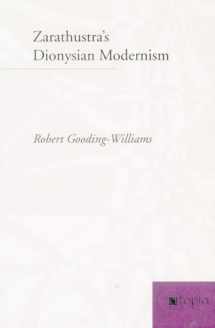
Zarathustra's Dionysian Modernism
Book details
Summary
Description
In arguing that Nietzsche's Thus Spoke Zarathustra is a philosophical explanation of the possibility of modernism―that is, of the possibility of radical cultural change through the creation of new values―the author shows that literary fiction can do the work of philosophy.
Nietzsche takes up the problem of modernism by inventing Zarathustra, a self-styled cultural innovator who aspires to subvert the culture of modernity (the repressive culture of the "last man") by creating new values. By showing how Zarathustra can become a creator of new values, notwithstanding the forces that hinder his will to innovate, Nietzsche answers the skeptic who proclaims that new-values creation is impossible. Zarathustra is a story of repeated clashes between Zarathustra's avant-garde, modernist intentions and figures of doubt who condemn those intentions.
Through a close reading of Zarathustra, the author reconstructs Nietzsche's explanation of the possibility of modernism. Showing how parody, irony, and plot organization frame that explanation, he also demonstrates the central significance of Zarathustra's speeches on the body and the will to power. The author argues that Nietzsche's critique of the modern philosophy of the subject revises Kant's concept of the dynamical sublime and makes allegorical use of the myth of Theseus, Ariadne, and Dionysus. He also proposes an original interpretation of the thought of eternal recurrence (according to Nietzsche, the "fundamental conception" of Zarathustra). Breaking with conventional Nietzsche scholarship, the author conceptualizes the thought not as a theoretical or a practical doctrine that Nietzsche endorses, but as a developing drama that Zarathustra performs.


We would LOVE it if you could help us and other readers by reviewing the book
Book review



